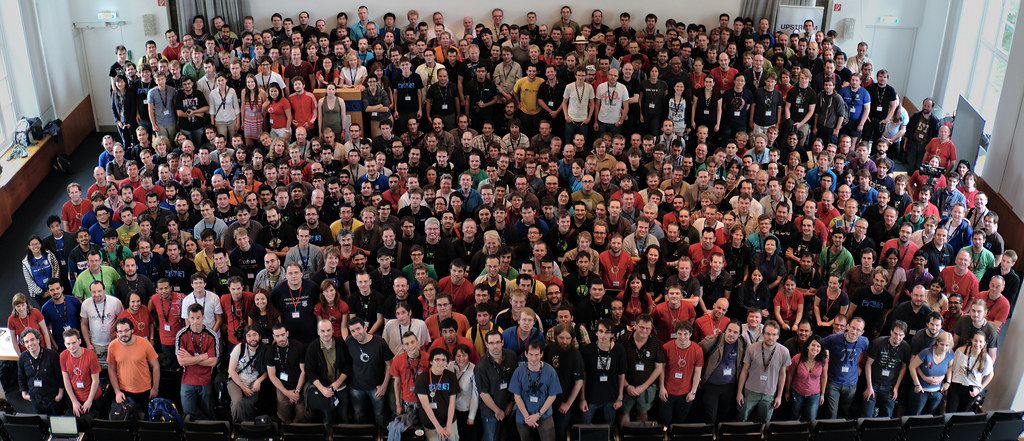 |
Desktop Summit group photo by KittyKat3756 |
Are you ready everyone to begin on the first module?
We begin with the topic Knowing the Learner. Developing a profile for your learners is an important first step, and you will see that we have given you a long list of questions to help you to think about this. So we suggest that you follow the information and the activities in wikiEducator in order. The Portfolio activities for each topic will guide you with the evidence you will need to develop for your assessment portfolio.
In module 1, we will be exploring a range of topics:
- learner preferences - should we really concern ourselves with learning styles?
- literacy and numeracy - how many of your students can write really well and do the maths they will need in their course?
- prior learning - what do your students already know? and
- expert learners - what does this mean exactly?
Do
- Keep posting regularly - to your blog and update the class on the Sharing your Work discussion forum - that way you will get feedback on your ideas.
- Leave comments for others - as you will see to the right, several people have made a start with their blogs. Great work everyone. So please take the time to reward them (following good behaviorism principles).
- Portfolio work for module 1 - plan to get this as ready as possible for assessment before moving on to the next module. That way the coordinators can give you early formative feedback and you will know if you are on the right track for the rest of your study in this course.
We look forward to meeting more of you this Friday on-campus - D317 - 13:30 - 15:00.
An online class will be scheduled later on before the mid-term break - please complete the Doodle poll so we know what suits you.

